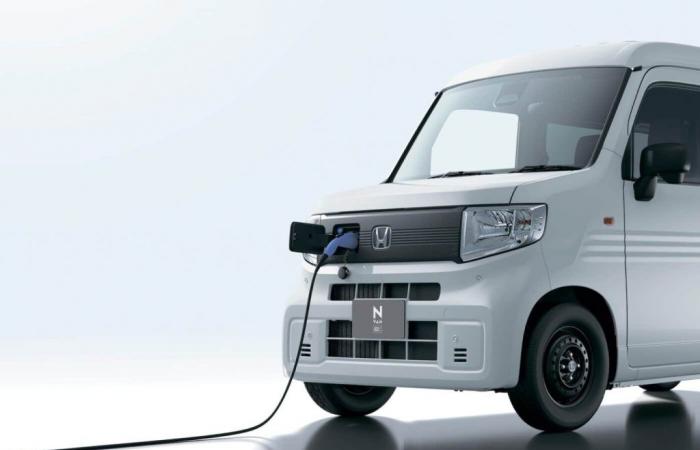Altna is the new name of the joint venture resulting from the collaboration between Japanese car manufacturers Honda and Mitsubishi. It aims to reduce the operating costs of electric vehicles, improve the resource cycle in Japan and extend the life of batteries.
Rent to reuse
A product of the marriage between Honda and Mitsubishi, the Altna joint venture will lease electric car batteries and reuse them when they are no longer in working order. It will also offer smart charging services to optimize charging costs. The way it works is simple: Honda will lease electric vehicles, while Altna will take care of everything related to the batteries.
For example, the N-VAN will be launched in October 2024 in Japan. It will be leased by Honda, but Altna will retain ownership of the battery and can monitor its condition throughout the rental. The objective of this company is to optimize the use of its batteries as much as possible by monitoring their condition and predicting their potential future degradation.
The batteries used will be followed throughout their life cycle, or at least a large part of it, from the sale of the new electric vehicle until its end of life. Once completed, they will then be used for stationary storage applications, allowing the company to offer prices “lower than similar rental plans currently available in the market.”
Optimizing batteries, but also the cost of recharging
This reuse of used electric vehicle batteries would then allow the joint venture to “provide supply and demand adjustment capabilities to allow greater grid stability” and thus contribute to increased use of renewable energies. Altna’s rental of electric vehicle batteries will also ensure efficient and appropriate recycling.
The joint venture will also offer charging plans for electric vehicles, allowing users to pay for their charging at a lower cost. In concrete terms, this will translate into energy control that avoids charging electric vehicles during periods of high grid usage. The energy control system, directly linked to electric cars, will offer automatic charging at times when electricity is cheapest.
Read also
titre
The company’s goal is therefore to optimize charging and enable its customers to use green energy when it is available. According to Altna, the joint venture could soon launch a new project offering vehicle-to-grid (V2G) services.






